Star Control: Origins Review
Captain your ship. Explore the galaxy. Throw away the lives of your crew on foolish adventures!
This article first appeared on USgamer, a partner publication of VG247. Some content, such as this article, has been migrated to VG247 for posterity after USgamer's closure - but it has not been edited or further vetted by the VG247 team.
Star Control Origins was a weird game for me to review. I've never played the original Star Control titles; at the time, I assumed they were 4X games and I was full up already. I've since realized that Master of Orion was the classic space 4X title for PC, but the damage has been done. I've been in the dark.
So I was heading into this fresh. It's worth understanding that Star Control: Origins is a reboot, not a prequel or sequel; it's meant as a fresh start while still retaining key franchise features. So my opening moments with Origins were not just experiencing the game itself, but coming to understand what "Star Control" is.
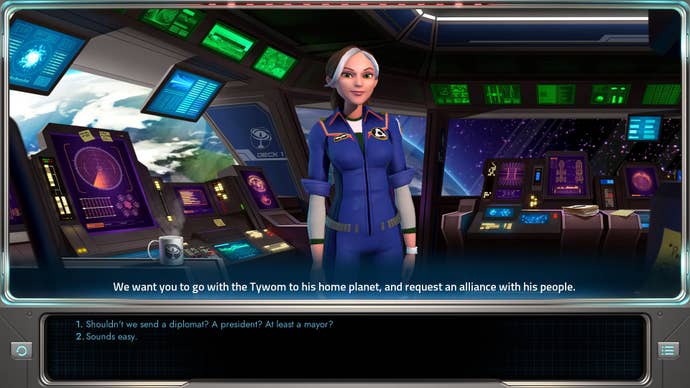
You're a former Captain drawn out of retirement by Star Control, an Earth-based organization focused on exploring the stars. They've built their biggest and best ship yet and they want you at helm, because something is happening in our solar system. What stretched out over these opening hours reminded me a lot of Mass Effect. Not in terms of third-person on-foot control and combat, but that feeling of exploration, where the universe itself seems endless. When I opened up the map for the first time, it was amazing how small I felt in the face of the cosmos.
There's also the Lander sequences. Every time you reach a new planet, you scan the surface to see whether it's safe to land on. If it is, you're given a landing vector; some are straight on, some curve wildly. Your job here is to stay within the vector. If you go off target, that lander can be destroyed with all hands aboard. If you do it right, you'll land on the planet. Then it plays out like the Mako from the first Mass Effect, a weird little buggy you can wander around each planet with, collecting resources, fighting creatures, and discovering unique structures.
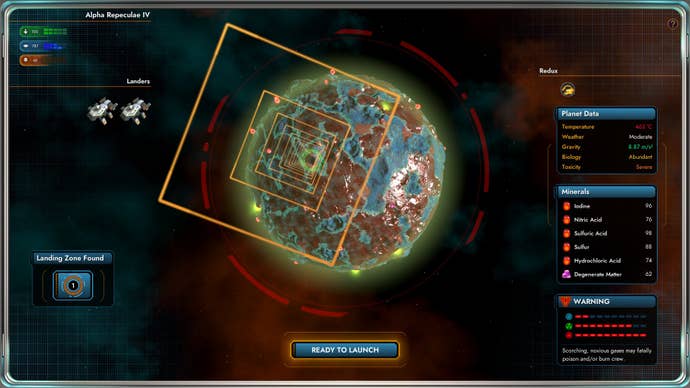
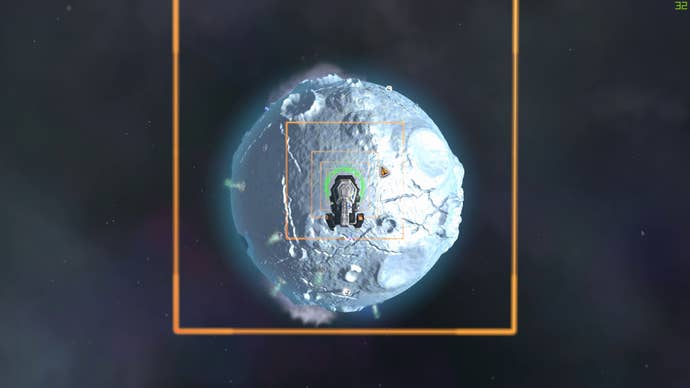
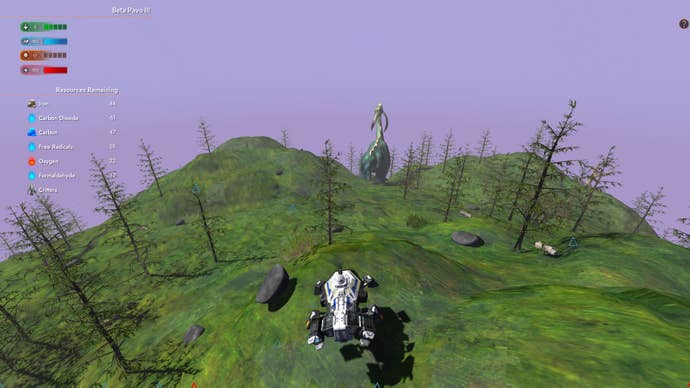
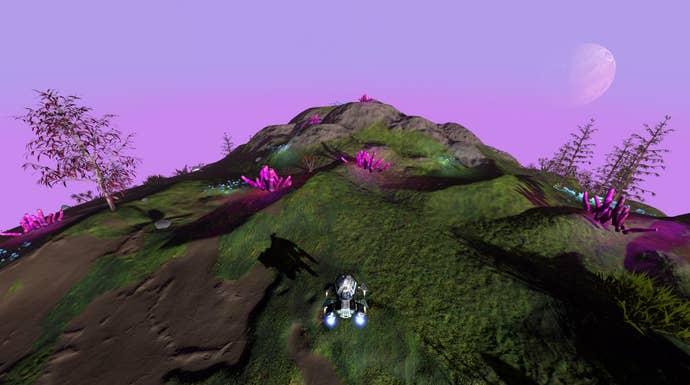
You'll be doing a lot of planetary exploration, so it's good that it's mostly fun like the Mako was. (If you didn't like the Mako, turn back.) Each planet looks be hand-crafted and there are a ton of them. Some are entirely too hot, some are radioactive, others have roving lightning storms and tornados. You'll find planets made of rock, ice, and various metals, each with their own material resources. You'll eventually be able to upgrade your ship and landers to tackle all of them and you'll need to, because those resources are needed for trade and improvements.
There's a decade-old science-fiction anime and manga called Planetes. While most science-fiction stories present wild adventure and sweeping vistas, Planetes instead told the story of space garbagemen. I love it because it feels real; the equal parts tedium, toil, and passion of daily work are sometimes missing from other sci-fi. Oddly enough, Star Control: Origins hits this feeling dead-on. Yes, there's Star Trek-style first contact and diplomacy, but the dialog also makes the case for this not being the most glorious job, despite all the things you're seeing. At the end of the day, you're still working: collecting those resources, meeting new aliens, and bringing all your findings back to faceless management.
Speaking of the writing, it's rather good in Star Control: Origins. The main story campaign is driven by dialog and objectives that push you forward; it doesn't seem to be procedurally-generated as far as I can tell. Sadly, it doesn't feel like there are a ton of meaningful choices available to the player. There doesn't seem to be a difference between the diplomatic, sarcastic, and aggressive answers, but it works for a single playthrough. The writing has this wry sense of humor and while you can choose more straight-forward answers, the developers clearly want you to have more fun in your interactions with other aliens.
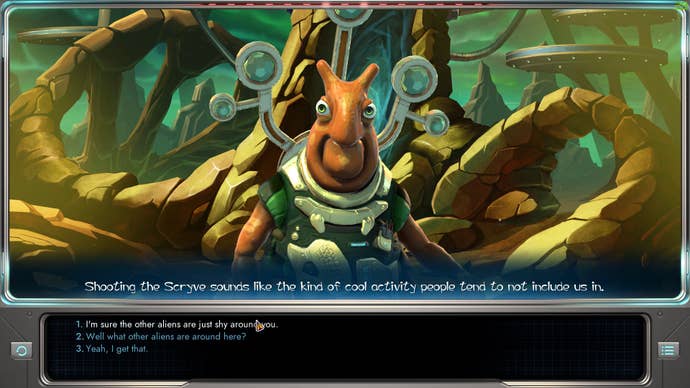
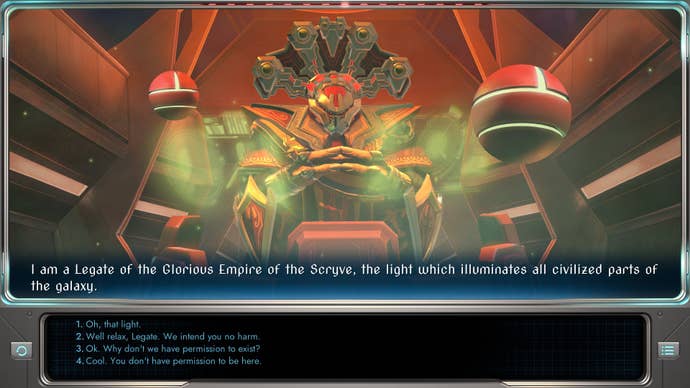
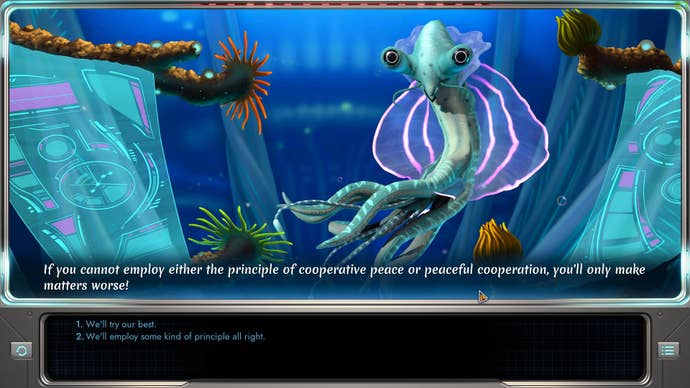
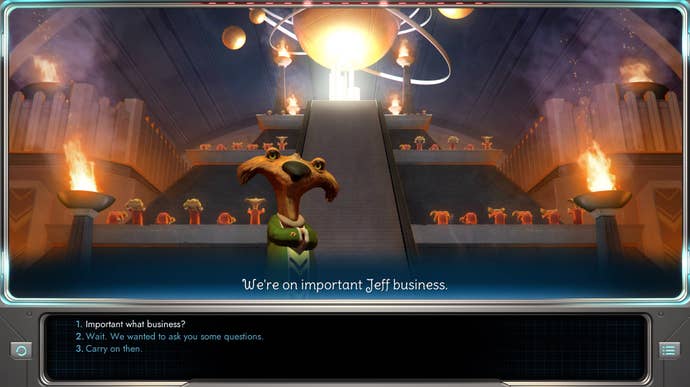
Those aliens are pretty broad in terms of characterization—once you've met one Tywom, you've met them all—but they're all fun in an early Trek way. The main thrust of the story campaign is the looming threat of the warlike Scryve, a brusque race wearing ornate armor. You'll meet others, like the warbound Drenkend, who were very happy to tell me how good they were at dying. I met them trying to protect the Mu'Kay, an aquatic race who formed a Federation of one and do their best to stay out of all conflict. There's even the broken Starbase AI, which is present in every floating outpost and was apparently never programmed to give a civil farewell.
That's not to say that everything in Star Control: Origins is fun and games. Ship combat is played out in an overhead Asteroids-style shooting game, with rotational controls and momentum. You'll grab power-ups floating around the area, use planetary gravity wells and wormholes to get around, or asteroids for cover. I never really jammed with ship combat, as it's a bit too simplistic for my tastes. You can upgrade your ship to let the AI fight these battles for you, but watching the AI trying to fight itself is almost worse.
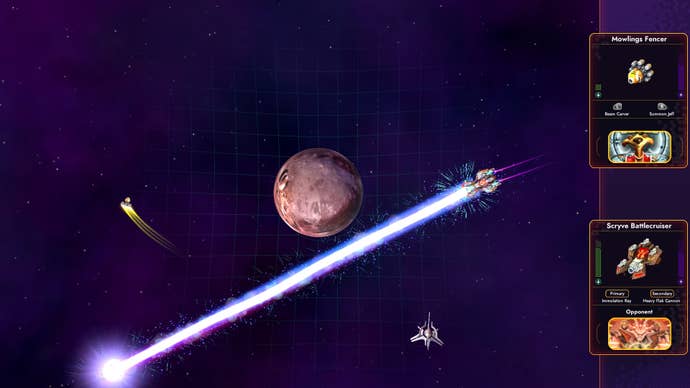
Star Control: Origins also has some issues in the late game. Upgrades increase your ability to tackle harsher planets and collect more resources, to the point that resources collection feels like it accelerates. I wouldn't say the game gets easier as you play, but I worried less about resource management later on. Also, for a game full of planets and solar systems to explore, there didn't seem to be any visual indicator that you've already tapped a planet dry. Given how many planets are out there, this leads to a lot of guess-and-test scanning, which increases the tedium.
It's clear that the developer is looking to the community to fill out the gaps in Star Control Origins' launch state. The game has released with a ship creator, not unlike Stardock's Galactic Civilizations III: if you want the Enterprise, you can build it, and many of the best creations will find their way onto the Steam Workshop. There's also a building creator, so you can build structures for your civilization. The UI has additional options for a universe creator and an adventure system, meaning a future version of Star Control Origins will let players craft their own stories, but neither is in the game yet.
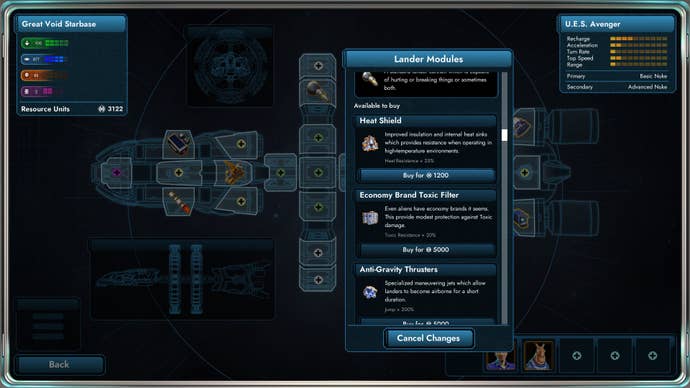
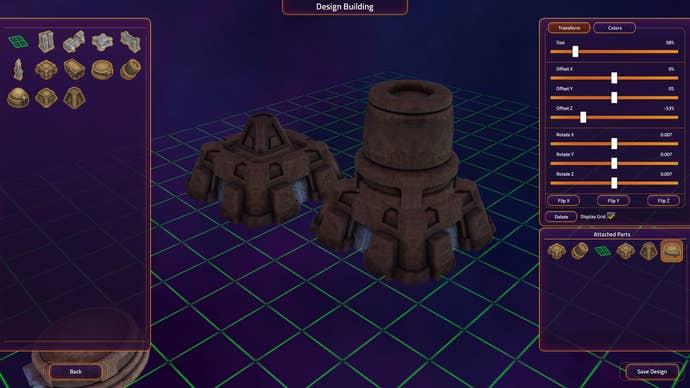
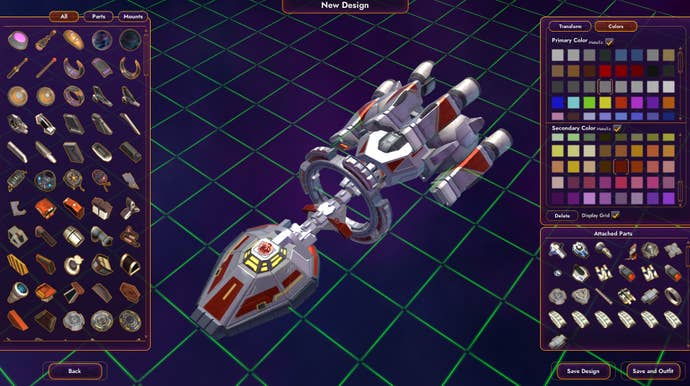
What you're getting today for your $39.99 is a solid start for the franchise. The story campaign is a wonderful starbound adventure that'll make you feel like the starship captain many of us have always wanted to be. Unfortunately, it offers a done-in-one kind of 30+ hour adventure, with a lack meaningful choices. The writing is crackling, but it can wear on you with repeated dialog in certain interactions. And while exploration is enjoyable, ship combat is a bit of a dud. Star Control Origins is a decent foundation and given the developer, it's likely it'll eventually be great, but right now it's just good.
ConclusionStar Control: Origins is a solid reboot of a PC classic. It provide players with a a huge universe to explore, vast planets to conquer, and interesting aliens to meet. If you've wanted to be a sci-fi ship captain, now is your chance. Unfortunately, the main story lacks meaningful players choices, ship combat is simplistic, the great writing can sometimes devolve into repetitive dialog. Star Control Origins is a decent foundation and given the developer, it's likely it'll eventually be great, but right now it's just good.

